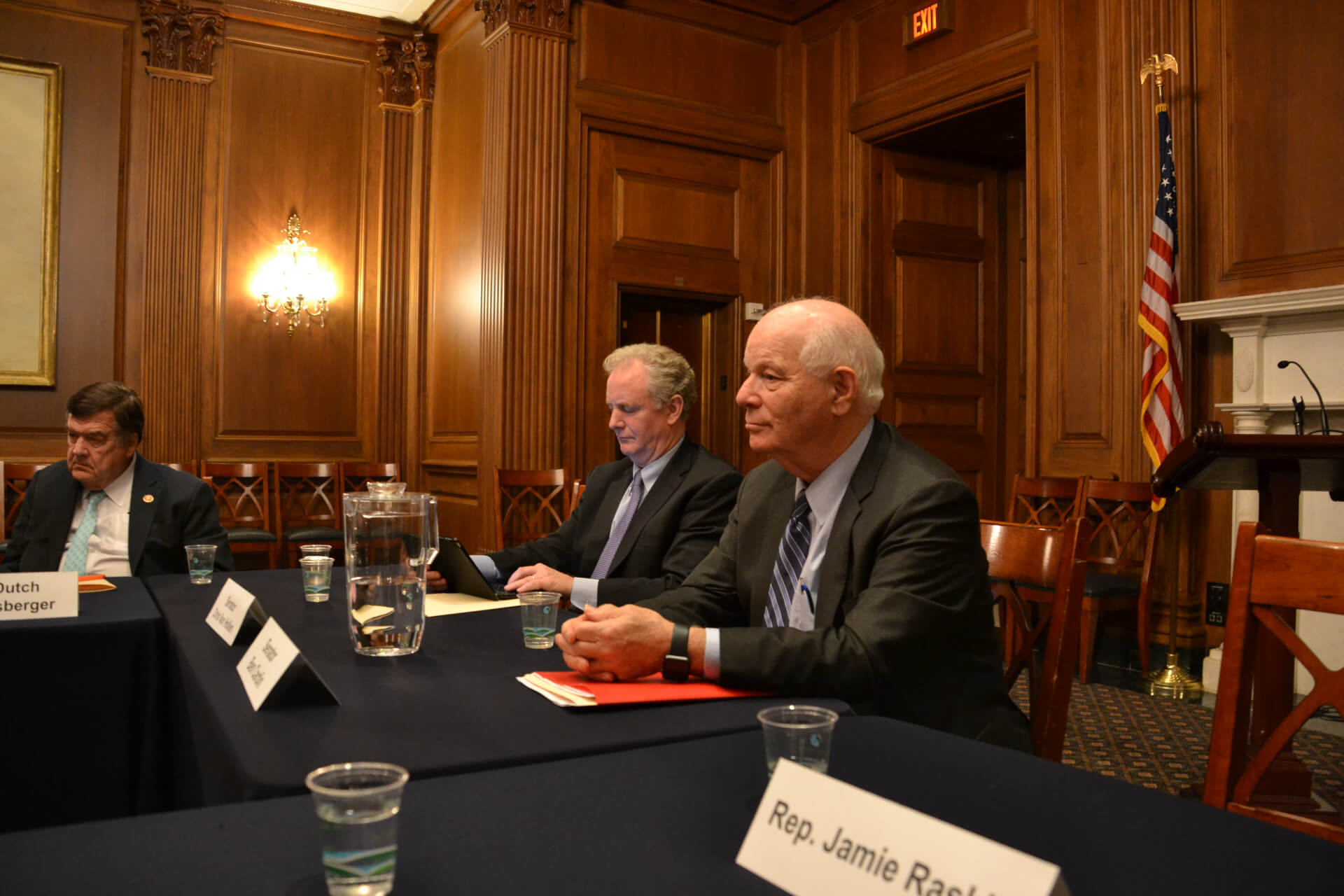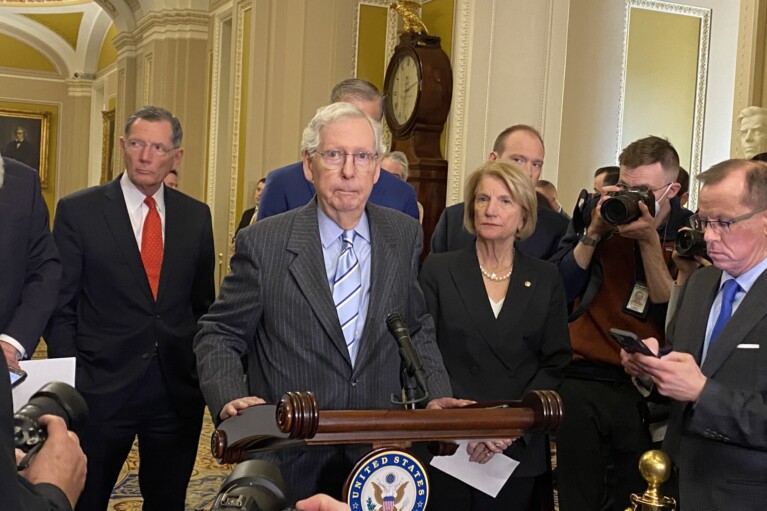U.S. Must Do ‘Much, Much More’ to Help Small Businesses, Senators Say

The federal government must move urgently to help small businesses survive the sharp downturn in economic activity caused by the COVID-19 outbreak, Maryland’s U.S. senators said Thursday.
A measure backed by Sens. Benjamin L. Cardin (D) and Chris Van Hollen (D) would establish a program that employers could use to repay their Small Business Administration loans for six months, effectively turning those loans into grants.
It would also create a new grant program for the hardest hit businesses and offer no-interest loans of up to $2.5 million to companies that agree to keep their employees on the payroll.
“It’s all about having capital to pay your bills, to pay your workers, to stay open, to stay viable,” said Cardin. “Our first priority is to keep the workforce in place and to keep the businesses in place.”
The senators said grants to small businesses — those with between two and 50 employees — are far preferable to loans because of the extreme cash crunch many are facing.
“Just incurring a lot of debt over the next couple months will only put them farther behind,” Van Hollen said. Loan forgiveness, he added, should be strongly encouraged.
Late Thursday, the Small Business Administration granted Maryland’s request to make the entire state eligible for Economic Injury Disaster Loans.
“Numerous businesses are reporting substantial impacts, largely as a result of protective measures that have been put into place to help lessen the spread of COVID-19, including the closure of bars, restaurants, gyms and spas, in addition to prohibiting the gathering of more than 50 people in one area,” Gov. Lawrence J. Hogan Jr. (R) wrote in a request letter to SBA Director Kem R. Fleming.
Before Thursday’s action by the SBA, only Maryland counties adjacent to other states already designated eligible for economic injury grants were eligible.
Cardin and Van Hollen said they convened a conference call with small employers, non-profit leaders and faith-based organizations who are worried about being able to keep their doors open.
“We’re hearing a real panic on their ability to maintain their workforce,” Cardin said. “They also are concerned about the time it would take to get a loan or a grant. They want definitive action.”
“We know many, many small businesses are getting hammered because they don’t have customers coming through the doors,” said Van Hollen. “It’s absolutely vital that we help provide them a lifeline to survive this moment.”
Van Hollen said he has spoken to business owners who’ve put their homes up as collateral against small-business loans they’ve taken out. “They are in crisis mode,” he said.
Self-employed individuals traditionally have not been eligible for SBA assistance because they don’t have at least two employees. The lawmakers said Congress should consider amending those rules to reflect the new “gig economy.”
On Thursday the Maryland Retailers Association expressed a host of concerns in letters to Hogan and leaders of the General Assembly.
In addition to cash-flow worries, businesses are concerned about security and potential evictions, said Cailey Locklair, the association’s president.
In a letter to Hogan, the association asked that businesses, along with residents, be shielded from eviction. Among recommendations, they called for allowing pharmacists to provide more health services, and to grant pharmacists authority, in case of shortages, to dispense substitute medications without a physician authorizing the change. The letter also asked for other rule changes to better meet Marylanders’ health and daily living needs during the pandemic.
Federal funds could not be used to expand an existing enterprise, only to keep current operations going, Cardin and Van Hollen said.
The COVID-19 small business relief measure has the support of Democrats on the U.S. Senate Committee on Small Business and Entrepreneurship and was introduced Thursday afternoon.
This week state Comptroller Peter V.R. Franchot (D) called on Hogan and the General Assembly to use $500 million in Maryland’s Rainy Day account to assist small businesses that have suffered a drop in income.
“Maryland’s local, independent businesses are the lifeblood of our state’s economy and the pillars of their communities,” Franchot said in a statement.
“In the absence of extraordinary action, far too many of them are going to go under as a result of the economic devastation created by the coronavirus pandemic.”
He said some neighborhood shops need funds to pay employees, vendors and rent in the next 45-to-60 days to avoid going under.




 Creative Commons Attribution
Creative Commons Attribution